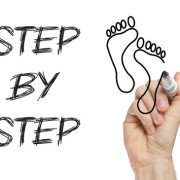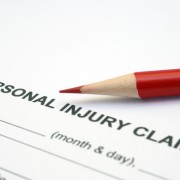4 Ways to Prove Emotional Distress
Winning compensation for calculable damages is straightforward in personal injury lawsuits, and most accident victims can recover their lost wages and medical expenses. According to USLegal.com, there is no guarantee of compensation for emotional distress, though, because proving your claim is a much harder process. Emotional distress is subjective, and most juries and judges are hesitant to award big sums of money for it.
Courts across Nevada are starting to accept emotional distress as a recognized form of damage, though. If an effective argument can prove emotional harm, then you will likely receive compensation.
If you are suffering emotional trauma, call an experienced personal-injury attorney in Las Vegas at 702-737-0000. Eric H. Woods Law Offices is available for legal guidance, especially if you have suffered serious emotional trauma.
Read on for four ways to prove emotional distress:
- Demonstrate physical injury is responsible for the emotional distress.
If no physical injury occurred, the court may dismiss your case for emotional compensation. Courts rarely listen to cases solely based on emotional distress, although it does occasionally happen. If you suffered severe injury and can prove that the injury is responsible for your emotional state, then you have a much stronger case and an increased likelihood of fair compensation.
- Gather the evidence that exists of your emotional trauma.
No matter how well you structure and present your distress, the jury may not believe the seriousness of your claim. If you can prove the extent of emotional suffering, though, the evidence will strengthen your case, but you need to have succumbed physically or mentally because of your emotional state.
A doctor’s letter or psychiatric testimony will help identify the level of distress. Acceptable diagnoses and physical symptoms include depression, neuroticism or psychosis, ulcers and migraines.
- Indicate an extreme underlying cause of emotional distress.
In some cases, emotional distress is the result of a highly traumatic event, such as the death of someone you love, disfigurement, permanent scarring or a genuine fear for your life. If you can prove an extreme underlying cause, then you may have a better chance of receiving compensation; however, the event would need to be extreme enough to make the average person suffer similar emotional distress in your situation.
- Keep records to legitimize claims of emotional distress.
Emotional distress is difficult to prove, and winning fair compensation is even more trying. If you are emotionally injured, you should record exactly what is happening around you and how it makes you feel. TruCounsel reminds readers that details often win cases, so keep records of any visits to therapists, as well as sleeping problems and poor work performance. Such records could strengthen your case and make it believable.
Though proving emotional distress is a tricky endeavor, you should not give up on your chances of recovering compensation. Personal injuries are expensive and traumatic; some are even life altering.
Everyone deserves justice and financial security. A personal-injury lawyer at Eric H. Woods Law Offices may be able to help you. Call 702-737-0000 to find out if you have a legitimate claim for emotional distress.











